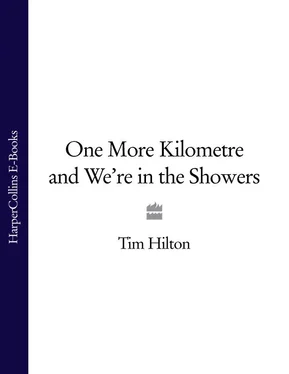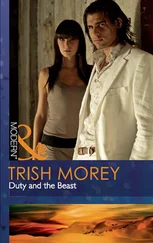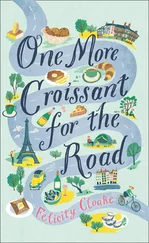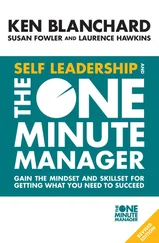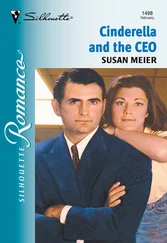1 ...8 9 10 12 13 14 ...21 First thing one Sunday morning, when I was grown up and indeed a father, I left the Arundel youth hostel for an awkward ride along the south coast. The plan was to give a wave to the Isle of Wight, soldier through Southampton, and then I wanted to pass through the New Forest before spending the night at the hostel in Winchester. The outing was a little delayed almost as soon as it had begun. I paused in Chichester, a place new to me. On the north side of the cathedral, still in the saddle, right foot in the toe clip, left foot on the pavement, I dutifully looked at the flying buttresses and gothic windows.
All was quiet. An early service of Holy Communion had just ended. Towards me walked a man in long black canonical garments. He was good at whistling. Through his shrivelled lips came the thin but accurate strains of a canticle. I supposed that he was one of the cathedral’s clergy. Still whistling holy music, this man approached me. A look of contempt came into his eyes. Perhaps the bright cycling clothing had annoyed him. He cleared his throat and spat into the gutter at my feet, then walked on his way. His spittle might have landed on my bike! I was so astonished that I could not reply to the affront, rode off and have never visited Chichester again.
Speaking as a cyclist, I have never had much truck with English ecclesiastical buildings. Perhaps because I come from Birmingham, I prefer late nineteenth-century municipal architecture, if possible in red brick. About ten years ago, curiosity about that sort of building led me to make a discovery at Wrentham in Suffolk. Wrentham is on the A12, 10 miles south of Lowestoft. My hope was that the Eagle might still be in business. I wanted to raise a glass to a Victorian chambermaid – a girl who ought to be celebrated by all cyclists. More of her in a moment.
Sadly, the Eagle had closed down. A few yards down the road was an unattractive brick place called Wrentham Hall, recently converted into flats and an antiques emporium. Placing the bike against its façade (gear side next to the wall, as always) I made my inspection from the other side of the road. Surely the building was too large for a village hall, and of the wrong date? Perhaps it had once been a school. There was a tower for a bell and a circular hole for a clock. This nondescript edifice had a mouldering tablet which read:
This tablet was erected
[illeg.] people of Wrentham to mark [illeg.]
the many improvements which have been made by
Sir Alfred Shirlock Gooch, Bart.
in this building and especially with the clock,
which has been altered at his sole expense
to commemorate the diamond jubilee of H.M. Queen Victoria.
June 22 1897.
Something puzzled me about this testimonial from the people of Wrentham. It recorded an event of little interest, but there was a distant familiarity in its wording. Suddenly, memory took me to the sooty buildings of central Birmingham. In Balsall Heath there had been an Alfred Street, a Wrentham Street, a Gooch Street and a Shirlock Street. My map showed a Benacre Hall next to Wrentham. That must have been the baronet’s home. And there had been a Benacre Street in Balsall Heath.
Empty, melancholy lanes skirt the grounds of Benacre Hall. You can’t see the house from these roads, only parkland, woods and a home farm. My communist upbringing gave me a feeling of political anger about the Benacre estate. Years ago, I had been given much childhood instruction on the evils of rentier capitalism. My guess (an accurate one: I later checked it in the library) was that there were people who lived at their ease in Suffolk because they took their money from the poor of my home city.
Shirlock Street, Gooch Street, Benacre Street were once well known to me. My mates lived there. We were friends because we went to Bristol Street Primary School. We sat together at shared desks, where we learnt nothing, then played dangerous games on the bomb sites, where we learnt how to make bonfires. On Saturday mornings I returned to Balsall Heath, for there I sold the Daily Worker.
It was an easy job because I had a round with regular customers. They didn’t buy the Worker in the week but on Saturdays the paper carried an extra page, i.e. six instead of four, and offered the tips of ‘Cayton’, its incomparable racing correspondent. Most of my regulars lived in houses built on the close-court system, with no back doors or back windows. They had water and electricity but no bathrooms or lavatories. Each court was entered through a ‘snicket’, an arched and enclosed brick alley. The courts themselves were rectangular, with eight dwellings on each side. In the middle of each court was a block of privies.
Now I return to Wrentham in 1990 and the nature of my pilgrimage to the Eagle. Wrentham was a place of good fortune for Robert Blatchford. Though he is largely forgotten today, Blatchford had an enormous effect on British cycling. Paradoxically, he wasn’t really a cyclist himself. He did ride a bike occasionally, but not often. And it seems that he had no contact with all the cycling clubs that were formed in alliance with his weekly paper, The Clarion.
That splendid periodical belonged to the 1890s. Blatchford was himself a happy-go-lucky adventurer of the nineteenth century. He reminds me of the Victorian motto ‘A clean shirt, a merry heart and a guinea’, the point of which was that with these three requirements you could get through the day and have a good time. Blatchford was a child of Bohemia who never knew his father. His mother, an Italian singer and actress, probably didn’t know Blatchford senior for very long. In her young widowhood (that was her cover story) she toured the country, mostly in the north, her son on the back of the cart among stage props, costumes and a few personal belongings.
Blatchford did not say how he lost touch with his mother. I know that he ran away from an apprenticeship and, at the age of twenty, found himself in Yarmouth, Norfolk. With five shillings in his pocket, he decided to go to London. In 1871 the best way to reach London from Yarmouth was by boat, but Blatchford decided to walk to the capital. Twenty miles down the road, in Wrentham, he came to an exhausted halt. He asked for shelter at the Eagle, too grand a place for such a lad. But the chambermaid I have mentioned took a fancy to him and smuggled him to her room upstairs. In the morning she sent him off from the back door with a farewell kiss and a sandwich – and he still had the five shillings.
Next, like many another runaway apprentice, Blatchford took the Queen’s shilling. He was a soldier until 1880, then started on the road that was to make him a social campaigner by doing ‘press work’, as he called it, soon earning good pay on the Sunday Chronicle. A journalistic assignment in the slums of Manchester converted him to socialism. The former vagabond had previously thought that poverty was a natural fact of life, but Manchester housing convinced him that something had to be done.
Blatchford began to read political treatises, the most influential of which was H. M. Hyndman’s and William Morris’s What is Socialism? ‘Directly I grasped the collective idea I saw that it was what I wanted.’ In 1892 he began a weekly newspaper, The Clarion , which expressed the ‘collective idea’. By the next year it was a national success and carried the first text of Blatchford’s William Morris-inspired Merrie England. This appeared in book form in 1894 and is said to have sold 700,000 copies in a few months.
Now a strange thing happened. Without intending to do so, Blatchford’s paper gave birth to cycling clubs rather than a political movement. The Clarion was all the more popular a paper because it was not in the least doctrinaire. Its politics were those of its founder: an independent, pleasure-loving man who believed in equality, preferred his native land to any other place, still had some fond feelings for the classlessness he had found in the army and took his lead from William Morris’s dictum ‘Fellowship is life. Lack of fellowship is death’.
Читать дальше
